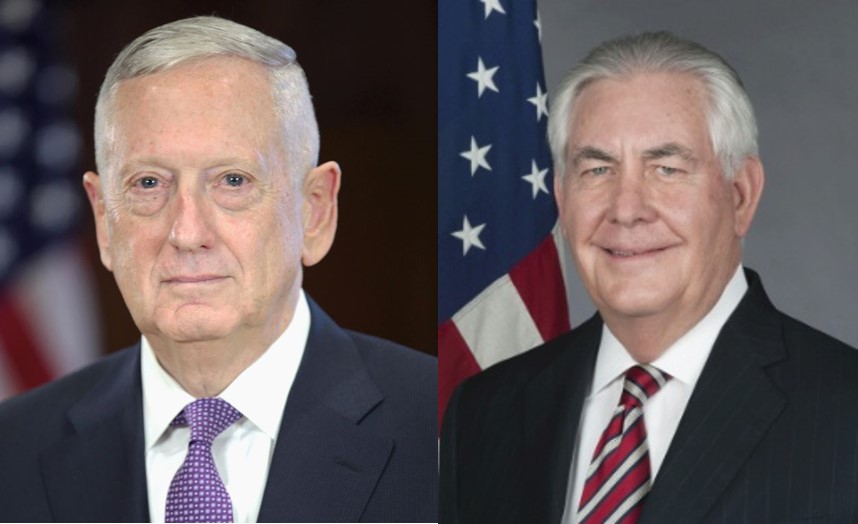Secretary of Defense James Mattis and Secretary of State Rex Tillerson testified before the Senate Foreign Relations Committee on Monday to give the Trump Administration’s stance on calls for a renewed Authorization for the Use of Military Force, or AUMF.
Both Mattis and Tillerson advocated leaving the AUMF in its current form, and warned against repealing it.
Leading Senators like John McCain (R-Az.) and Tim Kaine (D-Va.) are using events like the ambush in Niger of Special Forces personnel, and the rise of ISIS affiliates worldwide as justification for a new discussion on the President’s ability to wage war with what some see as “blanket approval” from Congress.
As we face a wide array of threats abroad, it is perhaps more important than ever that we have a sober national conversation about Congress’ constitutional role in authorizing the use of military force,” Republican Bob Corker, the chairman of the Senate Foreign Relations Committee, said in a statement.
Passed quickly in the days immediately following the September 11th, 2001 terrorist attacks, the original AUMF signed by President George W. Bush has been used by successive administrations to justify military action around the world against terror groups like Al Qaeda, and more recently, the Islamic State.
The recent deaths of four U.S. military personnel in Niger has become a political event, with some Senators claiming ignorance over what the SOF mission in Africa is for.
Congress is technically the only federal body Constitutionally mandated to retain the right to declare war, although that has not been exercised since World War II. The last AUMF was passed in 2002, authorizing the Iraq war.
Secretaries Mattis and Tillerson voiced opposition to curtailing any authorities the office of the President currently enjoys.
“Though a statement of continued congressional support would be welcome, a new AUMF is not legally required to address the continuing threat posed by al Qaeda, the Taliban and ISIS.” Secretary Mattis said.
The primary push-back from Senators, both Republican and Democrat alike, is a claim that they know too little about ongoing American military actions overseas, and that American citizens are kept further in the dark.
“I do not think the American people want the United States conducting a global, endless ‘Shadow War,’ under-the-radar, covert and beyond scrutiny.” Said ranking member Senator Ben Cardin.
Already have an account? Sign In
Two ways to continue to read this article.
Subscribe
$1.99
every 4 weeks
- Unlimited access to all articles
- Support independent journalism
- Ad-free reading experience
Subscribe Now
Recurring Monthly. Cancel Anytime.











COMMENTS